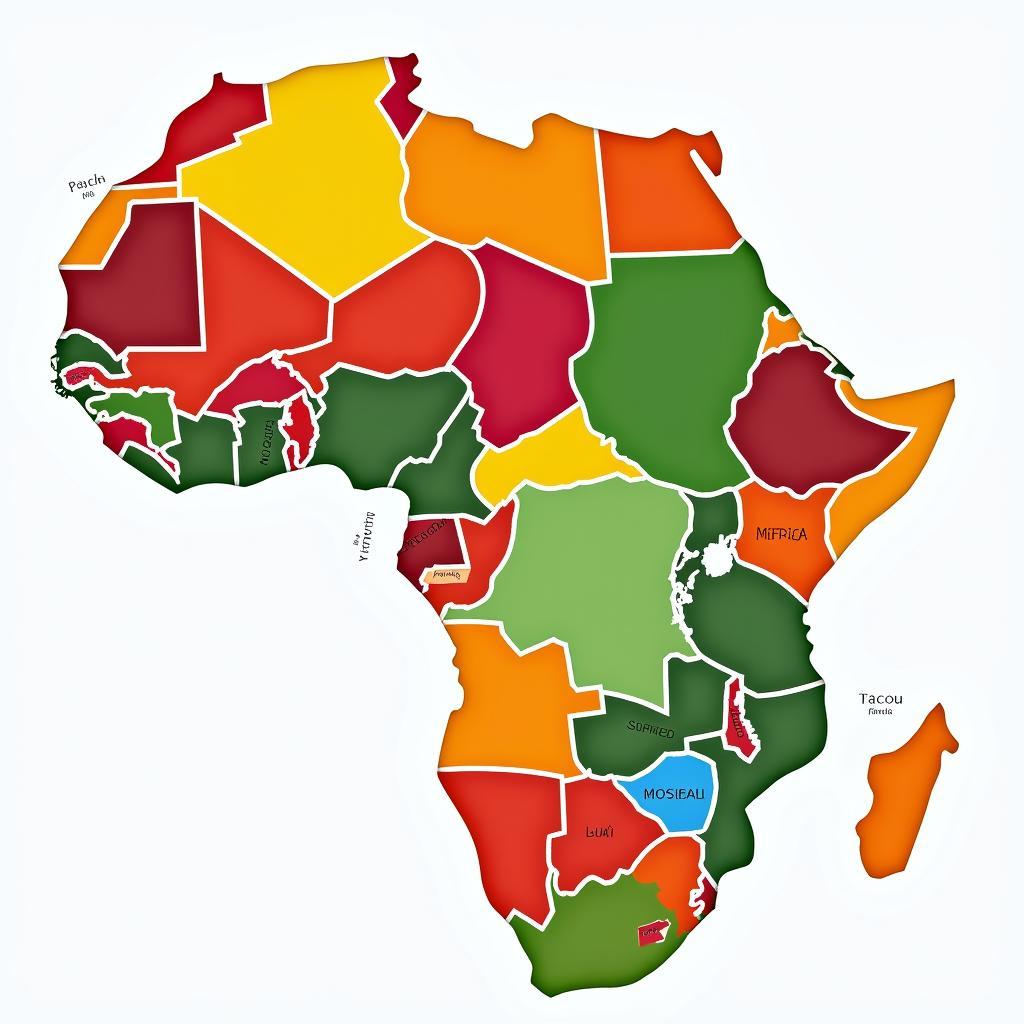African Elephant Gestation: A Deep Dive into Elephant Pregnancy
African Elephant Gestation is a remarkable journey, the longest of any mammal, lasting for nearly two years. This extended pregnancy is a testament to the complex development of these magnificent creatures. We will explore the fascinating world of elephant pregnancy, from conception to birth, covering key aspects like fetal development, maternal care, and the challenges elephants face during this period. Learn what makes this 22-month journey so unique.
The Marvel of African Elephant Gestation
African elephant gestation, averaging 640 to 660 days or about 22 months, is a truly remarkable phenomenon. This extended period allows for the intricate development of the calf, both physically and mentally. The sheer size of an elephant calf at birth, weighing over 200 pounds, is a testament to the lengthy gestation period. This extended development within the womb gives the calf a head start, equipping it with the instincts and physical capabilities it needs to survive in the wild. Read on to discover more about the stages of this incredible journey. After the initial period, the african elephant calf grows rapidly.
What is the gestation period of an African elephant? It’s about 22 months.
The Early Stages: Conception and Fetal Development
The first few months of african elephant gestation are crucial for laying the foundation for the calf’s development. The fertilized egg implants in the uterine wall, and the embryo begins to form. The heart starts beating early, a powerful symbol of the life growing within. Throughout the first trimester, major organs and systems begin to develop, setting the stage for the remarkable growth that follows. This period is particularly sensitive to environmental factors and maternal health.
The Middle Months: Growth and Maturation
As the pregnancy progresses, the calf undergoes a period of rapid growth and maturation. Bones begin to harden, muscles develop, and the calf starts to move within the amniotic sac. The mother’s body adapts to accommodate the growing calf, with her abdomen expanding significantly. This stage is marked by an increased appetite as the mother needs to consume more food to nourish both herself and the developing calf. This extra nourishment also assists in the formation of the calf’s tusks and trunk. Learn more about an african bush elephant baby.
How much does an African elephant calf weigh at birth? Over 200 pounds.
The Final Stages: Preparation for Birth
In the final months of african elephant gestation, the calf’s development nears completion. It continues to gain weight and its lungs mature in preparation for breathing air. The mother becomes increasingly restless as the birth approaches. She may separate herself from the herd for a short period, seeking a quiet and safe place to give birth. The other females in the herd, often experienced mothers themselves, will rally around her, providing support and protection. Check out these 25 amazing facts about african elephants.
Challenges and Conservation Concerns
While african elephant gestation is a natural process, it is not without its challenges. Habitat loss, poaching, and human-wildlife conflict can all pose threats to pregnant elephants and their calves. Ensuring the survival of these magnificent animals requires concerted conservation efforts, protecting their habitats and combating illegal activities. Learn more about african elephant pregnant animals.
What are the threats to pregnant African elephants? Habitat loss, poaching, and human-wildlife conflict.
Conclusion
African elephant gestation is a wonder of nature, a testament to the intricate workings of life. From conception to birth, the 22-month journey is a remarkable process of growth, development, and adaptation. Understanding and appreciating this process is crucial for ensuring the continued survival of these magnificent creatures for generations to come. Discover more about the African Elephant vs Giraffe.
FAQ
- How long is the gestation period for an African elephant? (Approximately 22 months)
- How much does a newborn African elephant calf weigh? (Over 200 pounds)
- What are the main threats to pregnant elephants? (Habitat loss, poaching, and human-wildlife conflict)
- How do other elephants help a pregnant elephant? (They provide support and protection, especially during birth.)
- Why is the African elephant gestation period so long? (It allows for the complex development of the calf’s brain and body.)
- What happens during the final stages of gestation? (The calf’s lungs mature, and the mother prepares for birth.)
- Where do elephants typically give birth? (In a quiet and safe place, often away from the main herd.)
Need help with your elephant conservation project? Contact us! Phone: +255768904061, Email: [email protected] or visit us in Mbarali DC Mawindi, Kangaga, Tanzania. We have a 24/7 customer service team.



